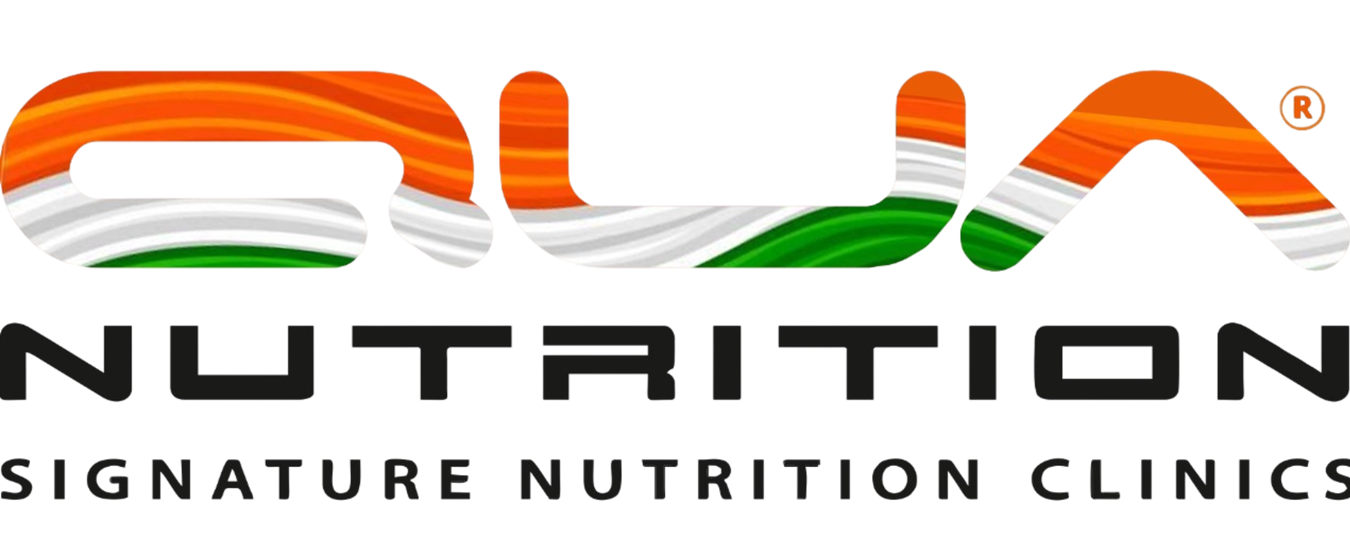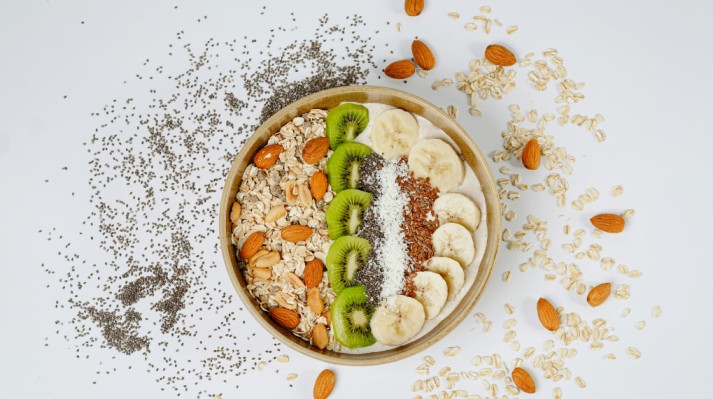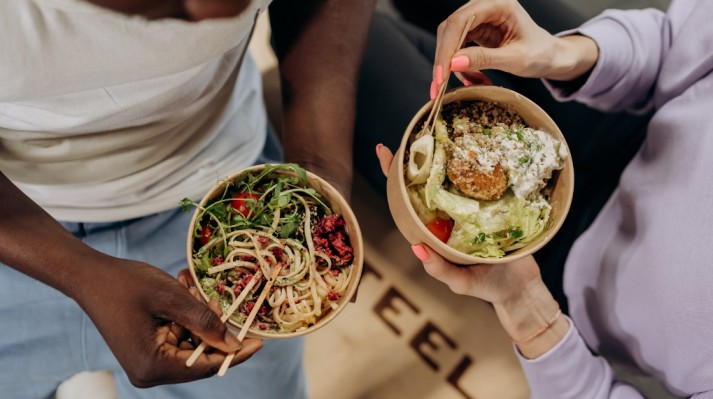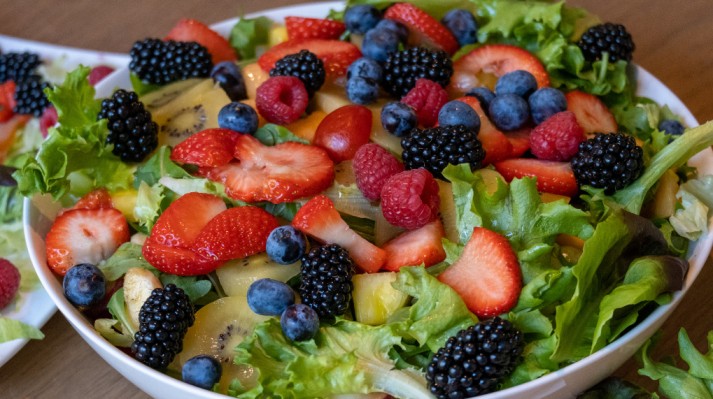Glowing skin is something that everyone wants. Following the latest skincare trends, achieving beautiful, youthful-looking skin starts from within. A significant number of the nutrients that we consume are essential for preserving the hydration, elasticity, and overall brightness of our skin. Your skin is the screen that reflects your nutrition, so think of it that way. Your diet will affect your health, resilience, and aging, among other things.
Fruits and vegetables that are high in water content, such as oranges and cucumbers, are beneficial for maintaining hydrated and plump skin. Omega-3 fatty acids, which may be found in flaxseeds and salmon, are known to reduce inflammation and increase the suppleness of the skin. Strong antioxidants, which may be found in leafy greens and berries, help protect the skin from the damaging effects of environmental stressors and prevent the appearance of dull, aged skin before its time.
In this blog, we will discuss the secret to having skin that looks younger and radiant. We are going to discuss the foods that you should incorporate into your diet for glowing skin to make your skin sparkle. Consuming the appropriate foods can improve your skin in various ways, including lowering the severity of acne, increasing the appearance of radiance, and delaying the aging process. Let’s start with some proven techniques that people have used to rejuvenate skin from within.
How Does Diet Affect Skin Health?
Your skin is more than just a protective barrier; it is also a reflection of what’s going on inside your body. A healthy body has a clear, glowing face, while poor nutrition can cause dry skin, acne, and aging before its time. What you eat affects how your skin heals, regenerates, and adapts to stressful surroundings. This is where a healthy diet plan for glowing skin comes in. When you maintain a proper diet filled with essential nutrients, your skin health gradually improves. Let’s look at the role some of these nutrients have in helping your skin glow:
Role of Hydration, Vitamins, and Minerals:
Hydration, Vitamins, and Minerals play an important role in glowing and healthy skin.
- Hydration: Having 2 to 5 liters of water daily makes your skin supple and prevents dryness. Cucumbers, oranges, and watermelons are some examples of foods you can incorporate to replenish skin hydration.
- Vitamins: The following are some essential vitamins you should consider incorporating into your diet for optimal skin health: vitamin C, which can be found in citrus fruits and bell peppers. Vitamin E prevents premature aging by opposing oxidative damage. Vitamin A, found in carrots and sweet potatoes, helps rejuvenate cells, decreasing acne and aging. Vitamin D helps skin repair, eliminate inflammation, and heal wounds.
- Minerals: The following are some minerals that aid in the betterment of your skin health:
- Zinc aids wound healing, acne reduction, and inflammation. It controls oil production, preventing breakouts.
- Selenium is an antioxidant that protects skin cells from free radicals. It inhibits early aging and maintains skin suppleness.
- Iron oxygenates skin cells, preventing dullness and maintaining a healthy complexion.
- Stress-related breakouts are reduced by Magnesium’s cortisol regulation and hydration support.
Signs of Poor Diet on Skin
Our skin reflects our inner health and vitamin deficiencies. Without essential vitamins and minerals, the skin struggles to heal, moisturize, and defend itself. A poor diet often leads to the following common skin problems:
- Acne and Breakouts: Having meals that are heavily processed and consist of refined carbohydrates and unhealthy fats can cause acne by increasing oil production and inflammation. Zinc and omega-3 fatty acid deficiencies may increase the issue, which slows skin healing.
- Dullness and Uneven Tone: A lack of antioxidants like vitamin C and vitamin E can cause dullness and uneven tone. These nutrients reduce oxidative stress and boost collagen production for healthy skin.
- Dryness and Flakiness: Dry skin and flakes result from dehydration or inadequate necessary fatty acid consumption. Vitamin A deficiency can slow cell turnover, causing flakiness.
- Premature Aging: Vitamin D, collagen-supporting vitamin C, and selenium deficiency cause skin aging, resulting in wrinkles and loss of elasticity.
Essential Nutrients for Glowing Skin:
To achieve healthy and radiant skin, you must include these essential nutrients. These nutrients will help you promote collagen production and prevent premature aging. Let’s have a look at the nutrients.
- Vitamin C:
Vitamin C is a powerful nutrient that is essential for producing collagen, which keeps skin supple and resilient. It also helps even out skin tone by getting rid of hyperpigmentation and fighting against elements that make you age faster. Citrus foods such as oranges, lemons, grapefruits, bell peppers, strawberries, and kiwi are excellent sources of vitamin C.
- Vitamin E:
As an antioxidant, vitamin E protects skin cells from the damage caused by smog and UV rays. It improves the skin’s barrier, which retains moisture and makes the skin supple. Almonds, sunflower seeds, bananas, and spinach are excellent sources of vitamin E.
-
Omega-3 Fatty Acids:
Omega-3s help keep the skin’s lipid barrier in excellent condition, which keeps the skin from drying out and becoming irritated. They also reduce redness and inflammation caused by acne, which makes the skin tone more even. Chia seeds, flaxseeds, walnuts, and fatty fish like salmon, mackerel, and sardines are beneficial sources of fatty acids.
- Zinc and Selenium:
Zinc helps wounds heal, controls oil production, and fights germs that cause acne. As an antioxidant, selenium prevents premature aging and environmental damage. To consume zinc, consider incorporating whole grains, beans, pumpkin seeds, and Brazil nuts.
- Antioxidants & Polyphenols:
Free radicals can cause fine lines and wrinkles, but antioxidants and polyphenols help get rid of them. They additionally facilitate the blood flow, which makes the face glow naturally. Blueberries and strawberries, dark chocolate (with high cacao), green tea, and red grapes are all beneficial sources of antioxidants.
Best Foods for Glowing Skin:
A diet for glowing skin containing foods that are rich in vitamins, antioxidants, and healthy fats can significantly enhance skin health and give you glowing skin. Here are some of the best foods for glowing skin
- Fruits and Vegetables:
Bright, vibrant produce contains vitamins and antioxidants that nourish and protect skin. Carrots offer beta-carotene, which produces vitamin A for cell renewal. Vitamin C and iron in spinach and other leafy greens help oxygenate the skin. Lycopene in tomatoes protects against sun damage, while vitamin C in oranges boosts collagen production and brightness.
- Healthy Fats—Essential for Skin Hydration:
Healthy fats are essential for maintaining the skin’s moisture layer and preventing dryness and irritation. Avocados have monounsaturated fats and vitamin E, which strengthen the skin’s barrier. Olive oil can help reduce redness because it reduces inflammation, and omega-3 fatty acids found in seeds like flax and chia can help keep skin supple and hydrated.
- Hydrating Foods:
Eating foods high in water helps restore moisture and flush out toxins, as skin hydration starts from the inside. There is silica in cucumbers that improves skin elasticity, and watermelon has vitamins that keep skin supple. Celery provides electrolytes that also hydrate.
- Protein-Rich Foods:
Protein is important for maintaining the health and collagen levels of your skin. Biotin, which is found in eggs, is known to keep skin from drying out and promote resilience. Zinc, which is found in legumes, helps the body heal and prevents acne. Tofu offers plant-based protein, helping to strengthen skin tissue and maintain firmness.
Foods to Avoid
Nutrient-dense foods help keep your skin healthy, but some food choices may harm your skin’s health. Cutting back on these problematic foods can help keep you from developing acne, inflammation, and premature aging.
- Excess Sugar: Insulin levels rise when you consume food with high amounts of sugar, which can cause oil production and inflammation that can lead to acne. It also makes glycation happen, which breaks down collagen and speeds up aging, making skin look dull and wrinkled.
- Fried and Processed Foods: Fries and snacks contain trans fats and refined oils that cause inflammation in the body. This could worsen acne, redness, and uneven skin tone. Also, these foods often don’t have many good nutrients, which means they don’t give your skin the help it needs to heal and stay hydrated.
- Dairy: Due to hormonal effects, eating cheese may cause acne breakouts. Milk has insulin-like growth factors in it that can make your skin produce oil, which can clog your pores. If dairy makes your acne worse, almond or oat milk might be a better choice.
- Refined Carbohydrates: White bread, cakes, and other refined carbs cause insulin levels to rise quickly, which makes your body produce more oil and causes acne. Also, glycation, which happens when sugars link to collagen, makes the skin structure weaker, which leads to wrinkles and sagging. Eating whole grains instead of refined carbs can help keep your skin’s flexibility and glow.
Sample 1-Day Meal Plan for Skin Health:
Here is a simple one-day meal plan to support skin health. However, since every individual has unique nutritional needs, a customized diet plan tailored to your body would be ideal for achieving the best results.
Breakfast: Oats with berries, chia seeds, and almond milk
Berries and oats both have antioxidants and fiber that help your body digest food and absorb nutrients. Chia seeds have omega-3 fatty acids that keep your skin moist, and almond milk has vitamin E that protects the environment.
Snack: Carrot sticks with hummus
Carrot sticks provide beta-carotene, which turns into vitamin A to enhance skin cell turnover. Hummus from chickpeas contains zinc, which repairs skin and prevents acne.
Lunch: Quinoa salad with avocado, leafy greens, and tomatoes
Avocado moisturizes skin, while quinoa provides protein for collagen synthesis. Leafy greens like spinach and kale include vitamin C, which helps collagen formation, while tomatoes contain sun-protective lycopene.
Snack: Green tea and mixed nuts
The antioxidants in green tea stop inflammation and free radicals from occurring. Vitamin E and omega-3s, which are found in nuts like almonds and walnuts, help protect the top layer of skin.
Dinner: Grilled salmon/tofu with steamed broccoli and brown rice
Omega-3s, which can be found in salmon or tofu for plant-based diets, help reduce swelling and dryness. Broccoli has vitamin C, which helps collagen stay healthy, and brown rice has important B vitamins that help skin heal and grow new cells.
Hydration Tip:
Drink 2–3 L of water daily to keep your skin hydrated and cleanse your body of toxins. To add a bit of flavor to your water, consider adding a squeeze of lemon and mint.
Bonus Tips for Radiant Skin:
- Stay Consistent with Your Diet: Long-term care, not quick fixes, is what skin needs to flourish. Eating nutrient-dense foods regularly keeps your body healthy, hydrated, and protected against external stressors.
- Reduce Stress for Clearer Skin: Stress increases cortisol production, causing breakouts, irritation, and dullness. Mindfulness, exercise, and relaxation improve hormonal balance and skin clarity.
- Get Adequate Sleep for Overnight Repair: While you sleep, your face repairs itself by producing collagen and repairing damage. Aim for 7–9 hours of good rest for fast cell turnover. This practice will help reduce fine lines and dullness.
- Avoid Smoking and Limit Alcohol: Heavy drinking dehydrates skin and causes inflammation, while smoking reduces the supply of oxygen and collagen formation, accelerating skin aging.
Nourishment starts from within. As we discussed, maintaining a healthy diet for glowing skin is imperative to increasing elasticity and maintaining youthfulness.
Qua Nutrition gives personalized nutrition plans that are made to fit the health and wellness goals of each person who wants professional help. Our team of experienced dietitians and nutritionists creates personalized plans to improve your skin, weight loss, and general health. Qua Nutrition helps people make smart food choices that lead to long-lasting effects by using a method based on science. Contact us now and get a personalized diet plan for glowing skin.









